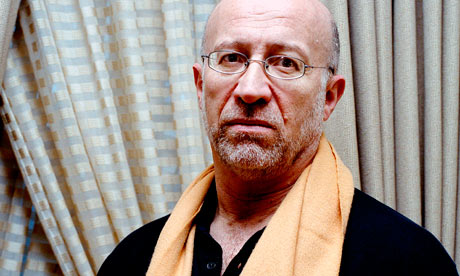I write on the night, as it happens, that Osama bin Ladin has been killed in his compound about 60kms from Islamabad, in a town, as I understand it, much used by the Pakistani military. Never mind that the compound had 3-6m high walls and, extraordinarily, (although it was clearly the home of a wealthy man) no internet or phone connection, never mind all the reasons why such a place would, one would have thought, attracted some suspicion in Pakistan sometime during the last six years since it was built, what astonishes me more are the people dancing in joy over his death. That, and the language used by our leaders, ("Tonight is a testament to the greatness of our country... we are reminded that America can do whatever we set our minds to," posits Mr Obama.) The Americans have, so it seems, buried him at sea so that there can be no shrine to his death, but really what their language suggests is they wanted to cut off his head and put it on a pike outside the White House till the birds picked out his eyes. They wanted to hang his corpse at the crossroads until the world had seen the flesh fall from his bones. We appear to be trapped in some medieval world of violence here, a barbaric place far distant from civilisation. A place similar, perhaps, to that of the Afghanistan or the Taliban, with their ritual stonings.Bin Ladin was, clearly, a murderer, and I neither question his guilt – he himself has laid claim to the deaths of thousands – nor do I mourn his death any more than I would mourn the death of Gaddafi, but neither do I proclaim it a Victory for Democracy. I do not dance in the street, my fingers held up in the churchillian sign for success. If asked I would have him brought back to America, or, better, to The Hague, for trial. Darkness falls on us all when we celebrate the killing of another in this manner; when we hear the sententious words of our own Prime Minister, welcoming his killing: “This is not the end of the War on Terror,” bringing to mind all those other meaningless and disastrous wars our betters have proclaimed over the last decade or so. Meanwhile we note that those doing the dancing are, by their pictures, young people who can hardly have any experience of this man’s evil. They appear to have been no more than ten years old when the Twin Towers fell. Wherefore now do they dance?
I attended a very bizarre meeting on the Coast yesterday with several members of Council.The topic was Caloundra South (yes, again, I know). For those of you who are not aware of what that is let me give the 25 word rundown: the Sunshine Coast is getting a new city of 50 000 people, on vacant land south of Caloundra. Council was doing the town planning for the development but late last year State Government said they weren’t doing it fast enough and took it over through the Urban Land Development Authority (ULDA), an outfit with even less accountability than Council.The meeting was an informal gathering of five people from Council, three Councillors and two Officers, and about fifty representatives of community groups. It had been called by Council to draw everyone’s attention to the narrow window we have been offered to even vaguely influence the development, now it’s gone to the UDLA.Certainly there is evidence of unseemly haste. Despite the recent floods casting doubts about the whole site – and the proposed report on that not being released until next year – this whole thing is supposed to be put to bed by October, brought forward from an original plan to have it begin in 2017. The problems are too many to mention, but the one major difficulty is that the development is both low-lying and adjacent to Pumicestone Passage. Those of you familiar with the district will know that the Passage runs between the mainland and Bribie Island from Caloundra in the north to Deception Bay in the south. That it is a fragile marine ecosystem already under significant stress. Building a city of that size in such a place is a disaster in the making.So what was bizarre? Sounds pretty normal for this part of the world doesn’t it?Well, the people from Council were there to help us, or at least to work with us, to draw up submissions to the ULDA (in the narrow time band available) to make sure State is apprised of the things we want for the development – like sustainability principles applied to water/sewerage/electricity, provision of the long promised public transport plan, good buffer zones, affordable housing etc.. The normal sort of stuff loony people want from government. The argument being that although State doesn’t really have much interest in this area (all the seats in this district are held by the opposition) it is an election year, and Pumicestone Passage has traction with Brisbane voters. Now that Council has no control over the development they figure that, working together with community groups, they can perhaps oblige the ULDA to still adopt the aforementioned principles of sustainability.Which is all fine and dandy except that Council, when it was in charge of the process, didn’t spend an awful lot of time listening to those of us assembled in the room, in fact ignored the vast majority of the submissions they received, many of which questioned the viability of the whole project, not so much even within the parameters that were being analysed as within the whole region. That is to say, many of the submissions were asking if it was a good idea to build another satellite city on the coast. If, indeed, this region could absorb that number of people, or, if it could, if a sprawling city of free-standing houses was the best way to go about it; if, perhaps, medium density wasn’t a better idea, or, if making the provision of a railway as a starting point was not an essential prerequisite. Amongst other things.Don’t get me wrong, it’s very probable that many of those questions appeared very naïve to a Council that had had the whole idea pressed upon them by State government in the first place. A State that was frankly unwilling to provide adequate infrastructure; but that doesn’t mean they were not valid questions and still shouldn’t be asked. The extraordinary thing from my point of view yesterday was the weird process whereby a group of people who’ve already had their painstaking work ignored by one level of government should now band with that same level of government to get their work ignored by another one.The thing is, we’ll do it. We have no choice. We’re a sad bunch, whittling away at the edifices of our institutions, trying to make them more human, trying to get them to recognise we live in an environment that includes the occasional other species. Right this minute we have a limited opportunity to perhaps influence the shape of the largest single development many of us will see in our lives. We’ll take it. But let’s not pretend it isn’t odd.
The problems are too many to mention, but the one major difficulty is that the development is both low-lying and adjacent to Pumicestone Passage. Those of you familiar with the district will know that the Passage runs between the mainland and Bribie Island from Caloundra in the north to Deception Bay in the south. That it is a fragile marine ecosystem already under significant stress. Building a city of that size in such a place is a disaster in the making.So what was bizarre? Sounds pretty normal for this part of the world doesn’t it?Well, the people from Council were there to help us, or at least to work with us, to draw up submissions to the ULDA (in the narrow time band available) to make sure State is apprised of the things we want for the development – like sustainability principles applied to water/sewerage/electricity, provision of the long promised public transport plan, good buffer zones, affordable housing etc.. The normal sort of stuff loony people want from government. The argument being that although State doesn’t really have much interest in this area (all the seats in this district are held by the opposition) it is an election year, and Pumicestone Passage has traction with Brisbane voters. Now that Council has no control over the development they figure that, working together with community groups, they can perhaps oblige the ULDA to still adopt the aforementioned principles of sustainability.Which is all fine and dandy except that Council, when it was in charge of the process, didn’t spend an awful lot of time listening to those of us assembled in the room, in fact ignored the vast majority of the submissions they received, many of which questioned the viability of the whole project, not so much even within the parameters that were being analysed as within the whole region. That is to say, many of the submissions were asking if it was a good idea to build another satellite city on the coast. If, indeed, this region could absorb that number of people, or, if it could, if a sprawling city of free-standing houses was the best way to go about it; if, perhaps, medium density wasn’t a better idea, or, if making the provision of a railway as a starting point was not an essential prerequisite. Amongst other things.Don’t get me wrong, it’s very probable that many of those questions appeared very naïve to a Council that had had the whole idea pressed upon them by State government in the first place. A State that was frankly unwilling to provide adequate infrastructure; but that doesn’t mean they were not valid questions and still shouldn’t be asked. The extraordinary thing from my point of view yesterday was the weird process whereby a group of people who’ve already had their painstaking work ignored by one level of government should now band with that same level of government to get their work ignored by another one.The thing is, we’ll do it. We have no choice. We’re a sad bunch, whittling away at the edifices of our institutions, trying to make them more human, trying to get them to recognise we live in an environment that includes the occasional other species. Right this minute we have a limited opportunity to perhaps influence the shape of the largest single development many of us will see in our lives. We’ll take it. But let’s not pretend it isn’t odd.
 Ross and I spent four days walking on the Great Ocean Walk last week, starting from just south of Apollo Bay and making our way past Cape Otway Lighthouse to Johanna Beach.The walk has been billed as one of the world’s great walks so we were keen to see it, and, indeed, it does pass through beautiful country; there’s a particularly pleasant stretch along the water near Shelley Beach on the first day, then another, the next morning, which traverses some big eucalypt country on fire trails and old forestry roads. The day we did that section there was sunshine after rain and big gusts of wind making the trees throw their tops around in joy.
Ross and I spent four days walking on the Great Ocean Walk last week, starting from just south of Apollo Bay and making our way past Cape Otway Lighthouse to Johanna Beach.The walk has been billed as one of the world’s great walks so we were keen to see it, and, indeed, it does pass through beautiful country; there’s a particularly pleasant stretch along the water near Shelley Beach on the first day, then another, the next morning, which traverses some big eucalypt country on fire trails and old forestry roads. The day we did that section there was sunshine after rain and big gusts of wind making the trees throw their tops around in joy. The problem with the walk was what we found at the end of that stretch: namely, people. The walk comes out, after 10 or so kilometres, at Blanket Bay, which, you quickly discover, people can, and do, drive to. The walk-in camp is adjacent to a drive-in camp, the beach is crowded with people, family groups, tourists, school parties out practicing snorkelling. There’s litter and no privacy.The next 5kms takes you over the bluff and round to the stunning Parker Inlet, but that’s not where the camp is, the camp, which is only a drive-in camp, and thus has no water for walkers, is back up on the top of the bluff again.Not wanting to stay there we set off around the headland across the rocks, past Point Franklin, a route not recommended on the map but particularly delightful, providing us with a bit of isolation, a little sense of being alone with the world. The coast there is characterised by low cliffs and a wide stretch of exposed rocks, little sandy bays, great masses of thick ribboned kelp rising and falling with the swell. Wind and water have carved the rock into networks of lattice, exposing ancient grain, releasing subtle colours.
The problem with the walk was what we found at the end of that stretch: namely, people. The walk comes out, after 10 or so kilometres, at Blanket Bay, which, you quickly discover, people can, and do, drive to. The walk-in camp is adjacent to a drive-in camp, the beach is crowded with people, family groups, tourists, school parties out practicing snorkelling. There’s litter and no privacy.The next 5kms takes you over the bluff and round to the stunning Parker Inlet, but that’s not where the camp is, the camp, which is only a drive-in camp, and thus has no water for walkers, is back up on the top of the bluff again.Not wanting to stay there we set off around the headland across the rocks, past Point Franklin, a route not recommended on the map but particularly delightful, providing us with a bit of isolation, a little sense of being alone with the world. The coast there is characterised by low cliffs and a wide stretch of exposed rocks, little sandy bays, great masses of thick ribboned kelp rising and falling with the swell. Wind and water have carved the rock into networks of lattice, exposing ancient grain, releasing subtle colours. Ross and I were carrying more than 20kgs each, which isn’t much in the scheme of things but is a lot to have on your back nevertheless – tent, sleeping bag, mat, cooking gear, food, etc., and the reason we’re prepared to lug that sort of weight around is that it means we can get to places you can’t otherwise reach. That’s the only reason I’m prepared to do it. Time and again the GOW disappointed by dropping us, at the exact location we were supposed to camp, right where hundreds of others had just driven to. Busloads of them. As if the people who had designed the trail had simply missed the point, had failed to understand the very rationale for walking with a backpack.It’s a beautiful trail, through wonderful country, along some excellent coastline, but if you want my advice, if you want to walk it don’t carry your gear. Stay in one of the lodges. Or get your camping gear dropped off for you each day by car. Do a separate section each day with only a day-pack and your lunch. Don’t, whatever you do, expect to be alone. Don’t, like we foolishly did, expect to have a wilderness experience.
Ross and I were carrying more than 20kgs each, which isn’t much in the scheme of things but is a lot to have on your back nevertheless – tent, sleeping bag, mat, cooking gear, food, etc., and the reason we’re prepared to lug that sort of weight around is that it means we can get to places you can’t otherwise reach. That’s the only reason I’m prepared to do it. Time and again the GOW disappointed by dropping us, at the exact location we were supposed to camp, right where hundreds of others had just driven to. Busloads of them. As if the people who had designed the trail had simply missed the point, had failed to understand the very rationale for walking with a backpack.It’s a beautiful trail, through wonderful country, along some excellent coastline, but if you want my advice, if you want to walk it don’t carry your gear. Stay in one of the lodges. Or get your camping gear dropped off for you each day by car. Do a separate section each day with only a day-pack and your lunch. Don’t, whatever you do, expect to be alone. Don’t, like we foolishly did, expect to have a wilderness experience. One of the great questions about going off for a walk like that is what book to take. By definition it has to be slim, and therefore somewhat intense. Good intention doesn’t work as a guide. I’ve taken classics, Andre Gide, Dostoievski, even George Louis Borges, and found no desire to read them in wild places. This time, after almost an hour of indecision, I had a moment of wonderful inspiration and packed Annie Dillard’s Teaching a Stone to Talk.I’ve read a lot of Dillard and this book was my introduction to her, but I hadn’t looked at it for fifteen or twenty years. The perfect choice for the journey; lucid, sharp, funny, meaningful, observant; calling, always, the reader to attention. My good friend Ross was kind enough to let me read aloud to him (something that so rarely happens now) and so, with by the light of my little head torch we heard Living Like Weasels and Total Eclipse. In the privacy of my tent I read the title piece, about a man who kept a pebble on a shelf, protected by a square of untanned leather, only removing it for the rituals he performed several times a day: teaching it to talk.Dillard has fun with the notion, telling us the jokes people tell about him, before bringing us back to earth, reminding us that once upon a time everything spoke to us. But now ‘we have doused the burning bush and cannot rekindle it; we are lighting matches in vain under every green tree. Did the wind use to cry, and the hills shout forth praise? Now speech has vanished from among the lifeless things of earth, and living things say very little to very few.’It’s only a short essay, five pages, but it runs across cosmology, Martin Buber, lichen and the Galapagos islands. It speaks of silence. The sort of thing you want to carry in a heavy bag down amongst trees that sweep the sky with joy and waves that let rise and fall the heavy kelp.
One of the great questions about going off for a walk like that is what book to take. By definition it has to be slim, and therefore somewhat intense. Good intention doesn’t work as a guide. I’ve taken classics, Andre Gide, Dostoievski, even George Louis Borges, and found no desire to read them in wild places. This time, after almost an hour of indecision, I had a moment of wonderful inspiration and packed Annie Dillard’s Teaching a Stone to Talk.I’ve read a lot of Dillard and this book was my introduction to her, but I hadn’t looked at it for fifteen or twenty years. The perfect choice for the journey; lucid, sharp, funny, meaningful, observant; calling, always, the reader to attention. My good friend Ross was kind enough to let me read aloud to him (something that so rarely happens now) and so, with by the light of my little head torch we heard Living Like Weasels and Total Eclipse. In the privacy of my tent I read the title piece, about a man who kept a pebble on a shelf, protected by a square of untanned leather, only removing it for the rituals he performed several times a day: teaching it to talk.Dillard has fun with the notion, telling us the jokes people tell about him, before bringing us back to earth, reminding us that once upon a time everything spoke to us. But now ‘we have doused the burning bush and cannot rekindle it; we are lighting matches in vain under every green tree. Did the wind use to cry, and the hills shout forth praise? Now speech has vanished from among the lifeless things of earth, and living things say very little to very few.’It’s only a short essay, five pages, but it runs across cosmology, Martin Buber, lichen and the Galapagos islands. It speaks of silence. The sort of thing you want to carry in a heavy bag down amongst trees that sweep the sky with joy and waves that let rise and fall the heavy kelp. Looking towards the lighthouse from Point Franklin
Looking towards the lighthouse from Point Franklin Rockpool
Rockpool Ross and I
Ross and I
I can’t help myself. I see theatre company adverts for Shakespeare and I want to go. It’s something to do with ur-performances – the young Tom Courtney as Hamlet in Edinburgh when I was seventeen, or The Footsbarn Theatre’s Macbeth in Sydney in a tent, circa 1985 – these performances enact a deep subconscious pull towards the possibility of what these plays can be and might be again. And why not? The same urge presumably informs the companies that continue to put them on.But oh, how often I am disappointed. Rarely as badly as I was by Brendan Cowell’s Hamlet, which dredged a new low in what is achievable from a major company, an interpretation in which he seemed to deliberately destroy every possible cadence of the words, ripping the heart out of the play until it was no more than a vainglorious slash-fest, a self-indulgent rant, leaving no room for the audience to relate to the characters. Enough to make even the most dedicated fan think twice about stumping up the fee.What strikes me as little short of weird is how often directors fail to recognise that the essence of Shakespeare lies in the text. Not in the plot. Not in cleverly managed sets or lighting or elaborate costume. In the words alone. It is the words that we go for. To hear well-trained voices bring to life the lines. And yet, time after time, we find them cut to pieces, obscured by loud music or special effects.Last night it was Julius Caesar at La Boite, in Brisbane. In the round. A brave production, one of the better, with some fine acting, but nonetheless marred by this same reluctance to give us the text of the play, to bathe us in language, to give us the great gouts of words that we crave to wash over us, never mind if we even understand them. What we get instead are songs and story, shaved of its reason for existence. As if the audience can no longer be trusted to sit through simple words but must needs be distracted with music and tricks of light.Don’t get me wrong: this was a good performance, and if you are hungry for Shakespeare you will get good meat here, especially in the performances of Brutus, Marcus Antonius and Cassius, but there is still something missing. By the end I do not weep for Brutus. By the end he and Cassius and all their ambition (for which crime they so readily slew Caesar) moves me not.Those ur-performances I mentioned before had one thing in common: bare stages, and an overwhelming respect for the text. When Macbeth knelt down to mourn his wife there was barely a dry eye in the audience, so engaged had we all become in his struggle. We had not been watching a Scottish king play out the politics of an ancient time in fancy words, we had watched a man such as ourselves come undone. We were riven by it.I say it again for those directors who would listen. It is not the plots of these plays that interest us. It is how the men and women who enacted that history were driven to it. That is what we want brought alive before us. The means of it is in the text. Cast aside your gaudy lights, your fancy stages, your pop songs and clever devices. Speak well and speak strong. That will carry us.(ps There was an odd choice made in this production where the two women in the company also played other leading male characters. Metellus had become Metella, Decius, Decia, Lepidus, Lepida. It didn’t work. It served as a distraction. This was a tale set amongst men who lived in a time in which they would not, could not, accept women as equals in valour. To ask us to pretend that they were otherwise undermines everything we know of them. However valiantly they were acted it made it hard for us to believe in them and those who would truck with them. This is not to say that in such an ensemble piece women should not take on the roles of men, only that in this case the women were playing women, and it is hard to imagine a woman as one of the actual murderers of Caesar, putting in the knife.)
Today marks a sad day in the history of bookselling. It is always a sad day when a bookseller closes its doors, no matter how bad that bookseller it is.The industry has been going through some difficult times over the last ten to fifteen years – not just book stores, the whole publishing industry – but bookselling in particular has been attacked on several fronts. The first and most important was not the internet or GST as many would have it. The most devastating attack on the industry came from the discount department stores (DDSs) such as K-Mart, Myer, Big W.These stores account for the sale of over 30% of all books sold in Australia. They turn over, they move books without the benefit of a bookseller in sight, without any more knowledge of the product than of a toaster, probably less, and at a discount which makes normal retailing of books marginal at best. They stock no backlist, they have no stake in the industry whatsoever, they pick the eyes out of the market and sell them at massive discount.Take Harry Potter as an example. On the day of release these books, at a recommended retail price of $45, were sold by the DDSs for between $22.50 and $27, which was less than most booksellers were buying them for. What this meant was that, if you were a small independent shop who wanted to retain your loyal customer you had to pay for a magician and a party, blow up balloons all night, and sell your stock at a loss. This for a bestseller, for a book that should have been the one item you could count on to bring in a bit of profit and support the provision to your customer of all that backlist lining your shelves.The extraordinary thing about it was that the DDSs weren’t making a profit either. No-one, except the publisher and J K Rowling were making anything. People would have paid anything for those books, it was a no-brainer, but because the DDSs believed they could give the books away and make a profit on the possible sale of a toaster they were prepared to outbid each other to the lowest price. The independents and chain bookstores were only collatoral damage in their fight.When the Red Group bought Angus & Robertsons they thought they could beat the DDSs at their own game. They would turn their bookstores into supermarkets for books, books at discount prices, tables groaning under the signs of ‘three for two,’ ‘two for $20’ and the like. In the process they forgot to notice that they weren’t also selling toasters, and that what customers have always wanted in a bookstore is not a bargain, but a book, something they will treasure, purchased from a venue which gave them a valid experience.I’ll come back to price – because, clearly, price is important, that’s why so many people are buying books from the internet. But it’s not the only thing. In the English language each year some 215 000 new titles are published. That includes education, training, manuals, children’s books, everything. But even then it’s a lot of books. If you’re an avid reader consuming, for the sake of argument, two books a week for forty years and you never reread a book you would read 4160 books. That’s all. At that rate it would take you 52 lifetimes just to read the output from one year.What a good bookshop does is sift through the dross. A good bookseller says no twenty times for every time he or she says yes to a title. More. Which means when you go into a bookshop run by a good bookseller the dross has been whittled out for you, the books on the table and on the shelves represent an eclectic and individual view of the world which speaks to the individual in you. Give that away, as the Red Group so willingly, so forthrightly did, and you’re left with nothing that anyone wants.Of course price is important. Books are expensive. They are also, however reluctant I am to admit it, at the discretionary end of the budget. If you’ve read a good review of a book why not order it from an online shop with a just-in-time stock line, and get it a price substantially less than you will at the local independent? Why not get it overseas rather than in Australia? I can’t think of any reason, except that bookstores, good bookstores, are wonderful places, full not of products, but of books, and browsing in them puts me in contact with titles I wouldn’t otherwise see or hear about and certainly never touch.The industry is still changing. The internet which is bringing us the advent of the eBook, will also bring us, before long, print-on-demand books; that is books that are printed and bound at the moment we order them, the text delivered electronically to the shop, obviating the need for transport, for returns, loss through damage. The complete backlist of forgotten authors will be available at the flick of a switch. What I hope, though, is that these machines will be in shops on the main street which still have real books on their shelves, run by people who love and read books themselves, who value the experience of reading and writing. One can but hope.
I've just finished reading a very intriguing novel - Mortals, by Norman Rush. I'm not sure where I heard of Rush or why I was drawn to read it but somehow or other it appeared on my pile and made its call for my attention.It’s a big book in lots of ways. Physically it’s 710 pages of small print that follows closely (the close-personal, free-indirect-speech sort of closeness for those writers amongst us) Ray, a professor of English Literature specialising in Milton who also happens to be a CIA agent living in Gabarone the capital of Botswana and who, also, deeply loves his wife. The narrative is paced in a most mysterious but engaging way, slow, almost ponderous, and yet rarely anything but riveting, trawling through Ray's mind which constantly throws up new and fascinating perspectives on what it's like to be alive. (Literature, he thinks at one point, is humanity talking to itself, and here is a wonderful example of the same). The second half of the book changes pace dramatically, from a story that is primarily about noticing to one trapped in action, but the quality of noticing is, in effect, just carried forward so that even in the most dramatic instants there is still a mind watching, calculating, ruminating. I loved this book but I'm not sure who to recommend it to because I don’t know who in the world still has time for this sort of careful, poised narrative. There’s a link, here, to a review of it by the wonderful James Wood, but I don’t recommend reading it until after you’ve read the book because he gives away too much of the plot (and, strangely, finds themes in the book which I entirely missed), I only point it out because Wood, also, loves the book. This is how he sums it up in the last paragraph:'Mortals is a deeply serious, deeply ambitious, deeply successful book. Like all such books, it is not without faults. ... But big books flick away their own failings and weaknesses, make insects of them. And how much is accomplished here! For once, knowledge in an American novel has not come free and flameless from Google, but has come out of a writer's own burning; for once, knowledge is not simply exotic and informational, but something amassed as life is amassed, as a pile of experiences rather than a wad of facts. (Botswana is never a backdrop but always the fabric of Rush's fictions, and he clearly knows and loves the country.) And for once intelligence is not mere "smartness," but an element inseparable from the texture and the movement of the novel itself. For once it is novelistic intelligence, for which we should give thanks.'
I loved this book but I'm not sure who to recommend it to because I don’t know who in the world still has time for this sort of careful, poised narrative. There’s a link, here, to a review of it by the wonderful James Wood, but I don’t recommend reading it until after you’ve read the book because he gives away too much of the plot (and, strangely, finds themes in the book which I entirely missed), I only point it out because Wood, also, loves the book. This is how he sums it up in the last paragraph:'Mortals is a deeply serious, deeply ambitious, deeply successful book. Like all such books, it is not without faults. ... But big books flick away their own failings and weaknesses, make insects of them. And how much is accomplished here! For once, knowledge in an American novel has not come free and flameless from Google, but has come out of a writer's own burning; for once, knowledge is not simply exotic and informational, but something amassed as life is amassed, as a pile of experiences rather than a wad of facts. (Botswana is never a backdrop but always the fabric of Rush's fictions, and he clearly knows and loves the country.) And for once intelligence is not mere "smartness," but an element inseparable from the texture and the movement of the novel itself. For once it is novelistic intelligence, for which we should give thanks.'
 If you like Shakespeare’s sonnets then you will be interested to know that Don Paterson has recently published a new commentary on them. You can read an article about the writing of this commentary, by Paterson himself, on the Guardian website here.Anyone who has followed the few entries in this blog – and I apologise sincerely for those who return looking for something new and find it all but abandoned these last months – will notice a fondness for Paterson. I confess to finding him one of the most interesting living poets and am drawn to everything he writes. The piece on his book Rain that I wrote is here, but, for those interested there is a transcript here of the speech he gave on receiving the T S Eliot prize for poetry a few years ago. It’s a lovely analysis of what he calls the ‘dark arts.’But back to this article. There are a couple of delightful little asides, not least of which is an account of his struggle with Helen Vendler’s commentary on the sonnets. Vendler is one of our foremost analysts of poetry, and, normally, she elucidates and adds to a poem she is talking about. In the case of the sonnets she spends several hundred pages of a very handsomely bound book demonstrating the arcane structures she has discovered within them, how one word, like ‘love’ will be used and re-used, twisted, added to and finally contorted within the last two rhyming lines. Paterson says of this:‘I also wanted to try to bring a bit of sanity to the discussion of how Shakespeare wrote these crazy poems in the first place. The main motivation here was reading Helen Vendler's brilliant and infuriating The Art of Shakespeare's Sonnets. As a critic, Vendler has led me through the thickets like a bemused and grateful child for years now, but I've had growing misgivings over her critical method, and her Shakespeare book was where I finally lost it. (Twice I found myself on my hands and knees, taping the book back together after it had bounced off the wall.)I wanted to say something to counteract the perception of Shakespeare's compositional method as a kind of lyric soduku, and put in a word for the kind of glorious, messy procedure I'm quite certain it was, whatever the crystalline and symmetrical beauty of the final results.’And, earlier he comments on the type of love being described:‘This is a crazy, all-consuming, feverish and sweaty love; love, in all its uncut, full-strength intensity; an adolescent love. The reader's thrill lies in hearing this adolescent love articulated by a hyper-literate thirty-something. Usually these kids can't speak. The effect is extraordinary: they are not poems that are much use when we're actually in love, I'd suggest; but when we read them, they are so visceral in their invocation of that mad, obsessive, sleepless place that we can again feel, as CK Williams said, "the old heart stamping in its stall".’Just to finish I thought I might include my favourite sonnet (because I can) number 73, one that others often seem to ignore:That time of year thou mayst in me behold,When yellow leaves, or none, or few do hangUpon those boughs which shake against the cold,Bare ruined choirs where late the sweet birds sang.In me thou seest the twilight of such dayAs after sunset fadeth in the west,Which by and by black night doth take away,Death's second self that seals up all in rest.In me thou seest the glowing of such fireThat on the ashes of his youth doth lieAs the death-bed whereon it must expire,Consumed with that which it was nourished by.This thou perceiv'st, which makes thy love more strong,To love that well which thou must leave ere long.
If you like Shakespeare’s sonnets then you will be interested to know that Don Paterson has recently published a new commentary on them. You can read an article about the writing of this commentary, by Paterson himself, on the Guardian website here.Anyone who has followed the few entries in this blog – and I apologise sincerely for those who return looking for something new and find it all but abandoned these last months – will notice a fondness for Paterson. I confess to finding him one of the most interesting living poets and am drawn to everything he writes. The piece on his book Rain that I wrote is here, but, for those interested there is a transcript here of the speech he gave on receiving the T S Eliot prize for poetry a few years ago. It’s a lovely analysis of what he calls the ‘dark arts.’But back to this article. There are a couple of delightful little asides, not least of which is an account of his struggle with Helen Vendler’s commentary on the sonnets. Vendler is one of our foremost analysts of poetry, and, normally, she elucidates and adds to a poem she is talking about. In the case of the sonnets she spends several hundred pages of a very handsomely bound book demonstrating the arcane structures she has discovered within them, how one word, like ‘love’ will be used and re-used, twisted, added to and finally contorted within the last two rhyming lines. Paterson says of this:‘I also wanted to try to bring a bit of sanity to the discussion of how Shakespeare wrote these crazy poems in the first place. The main motivation here was reading Helen Vendler's brilliant and infuriating The Art of Shakespeare's Sonnets. As a critic, Vendler has led me through the thickets like a bemused and grateful child for years now, but I've had growing misgivings over her critical method, and her Shakespeare book was where I finally lost it. (Twice I found myself on my hands and knees, taping the book back together after it had bounced off the wall.)I wanted to say something to counteract the perception of Shakespeare's compositional method as a kind of lyric soduku, and put in a word for the kind of glorious, messy procedure I'm quite certain it was, whatever the crystalline and symmetrical beauty of the final results.’And, earlier he comments on the type of love being described:‘This is a crazy, all-consuming, feverish and sweaty love; love, in all its uncut, full-strength intensity; an adolescent love. The reader's thrill lies in hearing this adolescent love articulated by a hyper-literate thirty-something. Usually these kids can't speak. The effect is extraordinary: they are not poems that are much use when we're actually in love, I'd suggest; but when we read them, they are so visceral in their invocation of that mad, obsessive, sleepless place that we can again feel, as CK Williams said, "the old heart stamping in its stall".’Just to finish I thought I might include my favourite sonnet (because I can) number 73, one that others often seem to ignore:That time of year thou mayst in me behold,When yellow leaves, or none, or few do hangUpon those boughs which shake against the cold,Bare ruined choirs where late the sweet birds sang.In me thou seest the twilight of such dayAs after sunset fadeth in the west,Which by and by black night doth take away,Death's second self that seals up all in rest.In me thou seest the glowing of such fireThat on the ashes of his youth doth lieAs the death-bed whereon it must expire,Consumed with that which it was nourished by.This thou perceiv'st, which makes thy love more strong,To love that well which thou must leave ere long.
88 Lines About 44 Women has been shortlisted for the Fiction Award.The shortlist is:Peter Carey for Parrot and Olivier in AmericaJM Coetzee for SummertimeBrian Castro for The Bath FuguesSteven Lang for 88 Lines About 44 WomenAlex Miller for LovesongLink to full short lists hereThe winner of the award was Coetzee for Summertime. However, having read four of the five books in this list I think I, myself, would have leant towards the Carey which is a fascinating book, very rich in context and delightful prose. Coetzee is one of my favourite writers but I'm not sure what he's doing wandering down this non-autobiographical road; playing with the notion of fiction and the author. There are true glimpses of brilliance, I cannot deny, and I have recommended the book and will continue to do so, but I think, in many ways it's an esoteric game and what it gains in technique it loses in feeling. For what it's worth.
 The site is being cleared in Mullumbimby for the new Woolworths store. Perhaps it might be useful, then, as a reminder, to post a couple of photos from our own debacle, as well as a link to Mandy Nolan's blog in the Byron Bay Echo. Here's a taste:'The dozers are rolling into town. Woolworths has won. Turns out, that unlike the Bible story, this supermarket Goliath couldn’t be brought down by the stoned.The state government has offered up Mullumbimby as the reluctant bride in an arranged marriage to be right royally buggered by the Fresh Food People. Our organic small town cherry is just another multi-national’s pavlova topper, another town’s hymen which needed to be broken so the mega profit making machines that drive economy could park their fat arses in our town.'While we believe there are certain anatomical problems associated with this idea we agree with the sentiment. You can read the rest here
The site is being cleared in Mullumbimby for the new Woolworths store. Perhaps it might be useful, then, as a reminder, to post a couple of photos from our own debacle, as well as a link to Mandy Nolan's blog in the Byron Bay Echo. Here's a taste:'The dozers are rolling into town. Woolworths has won. Turns out, that unlike the Bible story, this supermarket Goliath couldn’t be brought down by the stoned.The state government has offered up Mullumbimby as the reluctant bride in an arranged marriage to be right royally buggered by the Fresh Food People. Our organic small town cherry is just another multi-national’s pavlova topper, another town’s hymen which needed to be broken so the mega profit making machines that drive economy could park their fat arses in our town.'While we believe there are certain anatomical problems associated with this idea we agree with the sentiment. You can read the rest here
Tinkers, by Paul HardingOut Stealing Horses, by Per PettersenIll Fares the Land, by Tony JudtJust a quick mention of three books. The first is the Pulitzer Prize winning novel by Paul Harding onto which Geordie Williamson recently heaped indecent praise. Normally I’m in fairly close agreement with Geordie but in this case I couldn’t be further away. The story, if that is the correct word for a random collection of unaligned vignettes, is told by George Crosby as he lies on the hospital bed that has been placed in the centre of his living room. The family are gathering around to watch him die but even though we hear about them from time to time he has very little to do with them; George is off in history, hallucinating and re-remembering, getting his own personality mixed up with that of his father and his father before him in much the same way as he confuses the nephews who occasionally sit beside him through the nights.The writing is exquisite, I have to grant that. There are delicate and beautiful passages in amongst the schmozzle, but, really, most of the time I had no idea who anyone was and could care less. It’s not such a big book but even forcing myself to turn its limited number of pages was a struggle. It is what I think is often termed a ‘writer’s novel’, which means, I guess, that it’s literary in a studied way, full of language that is very aware of itself at the cost of something as basic as a plot.The same cannot be said for Per Pettersen’s wonderful novel Out Stealing Horses. Pettersen is Norwegian and the story takes place in the high country on the border between Norway and Sweden both in the present and in the late forties, in the aftermath of the War.It is a marvellous resonant work told by Trond Sander, an elderly man who has taken up residence in a run down cabin near a lake. Winter is approaching and he is attempting to get the place in order before the cold settles in, only his body is not the way it used to be, certainly it is not the way it was when, at fifteen years old, he stayed for a summer in the high country with his father. As is the way of these things his thoughts move easily between the past and the present, and it might be argued this is the same scenario that occurs in Tinkers, but in that book there is no story, very little unfolding. Here there is hard work and lust and misunderstanding; danger, too.It did not start out that way but by the end it seemed to me to be primarily about father’s and sons, an appreciation; a story with very little sentimentality but a real grasp of the moment. I loved this book and cannot recommend it highly enough.I also highly recommend Ill Fares the Land. Tony Judt died on August 6th. He is best known for Postwar, his remarkable history of Europe from 1945 to 2005, a book about which Neal Ascherson wrote: "As soon as you realise how good it is, this book will frighten you. This is not just a history. It is a highly intrusive biography ... 'Postwar' is us."Earlier this year, already stricken with ALS or Lou Gehrig’s Disease, he wrote and published Ill Fares the Land. It is a fierce polemic for the importance of politics, for the engagement of citizens in an awareness of our place in history, where we’ve come from and how we got here, written in that same lucid style which made Postwar such a profound read.If you, like myself, have been despairing about the asinine level of debate which is occurring on policy during this election campaign then Judt’s work is a the perfect antidote.There is an article on Judt here, and another here. Vale Tony, grateful we are for minds as astute as yours.
Tony Judt died on August 6th. He is best known for Postwar, his remarkable history of Europe from 1945 to 2005, a book about which Neal Ascherson wrote: "As soon as you realise how good it is, this book will frighten you. This is not just a history. It is a highly intrusive biography ... 'Postwar' is us."Earlier this year, already stricken with ALS or Lou Gehrig’s Disease, he wrote and published Ill Fares the Land. It is a fierce polemic for the importance of politics, for the engagement of citizens in an awareness of our place in history, where we’ve come from and how we got here, written in that same lucid style which made Postwar such a profound read.If you, like myself, have been despairing about the asinine level of debate which is occurring on policy during this election campaign then Judt’s work is a the perfect antidote.There is an article on Judt here, and another here. Vale Tony, grateful we are for minds as astute as yours.
... from my phallocentric perspective just about every bad thing in history was caused by men who could not work out the right relationship between themselves and their penises...more from Lee Seigel at the New York Observer here
So I’ve got my iPad. This remarkable piece of equipment which I’m not really terribly sure what to do with - I mean it is unquestionably beautiful, mysteriously functional, with an exquisite resizing screen and thousands of apps - but in all honesty I can’t see what I might do on the thing that I don’t already do on my laptop.Except, of course, read books.The problem being that in Australia you can’t get any. You log into iBooks and there are no books for sale. Apple is yet to sign an agreement with Australian publishers which will allow you to access them. Apparently no framework has been developed which protects the rights of authors and publishers. It’s not just Australia; Apple is concentrating on the American market and has yet to finalise agreements with the EU or the UK; we’re a long way down the list. Well, that’s the story according to the Australian Publishers’ Association.You can buy electronic format books online, of course. There are several different stores, Kindle, Stanza, Borders, for example, all of which work on the iPad. But not iBooks, the Apple Application for which most people buy the thing in the first place.The strange thing about this is how – I’m struggling for a word here, trying to avoid the one that springs to mind, but no, here it is – how unbelievably stupid this is.We’ve already seen the problems the music industry had with this issue. We’ve watched the issue re-hashed for television and film (the purblind refusal by our television stations to acknowledge that we have instant access to American television shows here through bittorrent. The belief we should politely wait until our betters give them to us, sometimes years later). We’ve had at least ten years warning that we needed to sort this out. I myself sat in workshops and panel sessions at booksellers’ conferences seven years ago discussing the imminent arrival of the e-book. Now it’s here and we still don’t have the mechanism to provide instant cheap copies of electronic books to readers who want to buy them. Except we know exactly what happens when that capacity is absent, don’t we?Customers will not wait around for corporations to get their act together. They will access the content for themselves in other ways, most often for free, and with no concession to international borders. And once they have started thinking that they can get content for free it will be hard to get them back to the idea of paying.A good friend also has an iPad. He showed me his library, all stacked neatly on iBooks’s virtual shelves. It already contains literally thousands of books, only some of which he paid for.‘I would gladly have bought them,’ he said. ‘I love books.’ (He does, he has shelves and shelves of them at home, I’ve seen them.) ‘But if I’m not allowed to buy them I’m going to get them elsewhere.’He’s not alone. Apple hopes to sell 100 million devices across the world by Christmas. Some of those customers might even want to read my books. Some of them might even be prepared to pay for them. Why can’t they get them?I don’t mean to be facetious. I can see that there are huge problems associated with this. Not just for writers, booksellers and publishers – there’s an interesting take on the debate as it relates to newspapers and paywalls here from David Mitchell at the Guardian (which winningly begins by opining that Rupert Murdoch is ‘a monstrous arsehole who wants to ruin everything for everyone’ and goes on to consider the pros of what he's attempting with the Times) – but the longer those who hold the rights to content delay delivering it at a reasonable price, the more customers we’re all going to lose. The real and present problem is that the technology is already freely available. If we don’t use it, others will, and they won’t pay us for it.
‘… it seems a good in itself to acknowledge, to have enlarged, one’s sense of how much suffering caused by human wickedness there is in the world we share with others. Someone who is perennially surprised that depravity exists, who continues to feel disillusioned (even incredulous) when confronted with evidence of what humans are capable of inflicting in the way of gruesome, hands-on cruelties upon other humans, has not reached moral or psychological adulthood.’Thus begins chapter 8 of Susan Sontag’s work Regarding the Pain of Others, a polemic on viewing the suffering of others via art or photographs.I’ve been struggling with its argument ever since reading it. I mentioned it in conversation with my friend Michael Berry when he said that he was reading a history of the Rape of Nanking and he suggested that perhaps such a belief came about in people who had visited or lived in war zones in the way Sontag had. ‘I think it changes people irrevocably,’ he said.I am always surprised by human wickedness. As a student of history, as a reader, I cannot help but be aware of what has happened in both the distant and the immediate past. Yet to encounter descriptions of it never ceases to shock me to the core. Does this mean I have yet to reach moral or psychological adulthood? Do I have to witness it myself, in the flesh, for it no longer to affect me thus?Susie Lindfield writes in the magazine Guernica of the problems associated with the present international belief in the power of Truth and Reconciliation Tribunals. She mentions Jean Améry:‘writer, résistant, Jew—who was captured by the Gestapo in 1943 and survived (or, as he insisted, did not really survive) Auschwitz and other camps. Améry’s relative anonymity is a shame, for he wrote some of the most original, incisive, and discomfiting essays on torture and genocide ever penned—essays that are, sad to say, still strikingly relevant, and that challenge current ideas about what reconstruction after genocide might look like. Despite the restrained irony of Améry’s voice, his writings accumulate into an accusatory howl.’Lindfield goes on to talk about Rwanda and what is being asked of the people who survived the genocide there. I invite you to read her essay here. I challenge you not to be deeply wounded by what you read.I think Sontag is wrong. It is our capacity to be surprised and disillusioned (again and again) which might, just, save us.Lindfield refers to a series of photographs which are on display here under the title Intended Consequences. It might be that the photographs would be interesting without reading the article first. I would recommend looking at them afterwards.
I hadn’t heard of it either until I read this fascinating article by Errol Morris in the New York Times. It refers to ‘a condition in which a person who suffers from a disability seems unaware of or denies the existence of his or her disability.’ The article, which is witty as well as profound, starts with the remarkable story of McArthur Wheeler who robbed a couple of banks in Pittsburg while under the protection of ‘the juice.’ The poor man had rubbed lemon juice into his face under the belief that it rendered him invisible to video cameras. Extrapolating from this we come to the possibility that some of us might be too stupid to realise that we are too stupid to do certain things. From here Morris dives off into the world of both known and unknown unknowns.Now, if what I’ve written so far hasn’t sent you off to read Morris’s piece, allow me to spin off to the side myself for a moment. As soon as I started reading the article I thought there had to be some consonance with the process of writing. The creation of a work as large as a novel takes, often, several years. It is peculiarly frustrating and renders the author susceptible to all manner of self-torment precisely because of the level of unknowns he or she faces everyday. We know that a particular character is going to encounter another character, because that is the basis of our proposed story, but we don’t know what the place in which it happens looks like, who else is there, what time of day it is, what the weather is like; we don’t even know the social/family/ethnic background of either of their characters – in fact all those things, up to and including their age, gender, and names are mutable.What happens, over a process of months and years, is that we narrow these and another million choices down and laboriously develop reasonably concrete scenes. We take these scenes and weave them into some form of narrative which we hope has a coherent thread, or at least a thread coherent enough to tempt a reader to follow it.That this can be done is miraculous enough in itself but it is during the latter period that the truly fabulous begins to occur: we realise, for example, that in a given scene our character’s motivation is not quite correct. We go back through the chapters preceding it, changing a word here, a sentence there, removing or substituting a line of dialogue – a terrible and frightening process, risking the whole edifice – only to find, when the last word is in place, that the whole thing comes to life.This is the business of unknown unknowns. As artists we have to allow, or force, ourselves to sit with the incompleteness of the material before us – its innate crappiness – calming ourselves and our fragile egos in the face of it, until enough matter has come into being on the page to allow us to ask a question which we would not have been able to ask until that moment, the question which will give us the right answer.There is, as far as I know, no possible way to circumvent this. It is, quite possibly, why so many writers and artists drink.*
As soon as I started reading the article I thought there had to be some consonance with the process of writing. The creation of a work as large as a novel takes, often, several years. It is peculiarly frustrating and renders the author susceptible to all manner of self-torment precisely because of the level of unknowns he or she faces everyday. We know that a particular character is going to encounter another character, because that is the basis of our proposed story, but we don’t know what the place in which it happens looks like, who else is there, what time of day it is, what the weather is like; we don’t even know the social/family/ethnic background of either of their characters – in fact all those things, up to and including their age, gender, and names are mutable.What happens, over a process of months and years, is that we narrow these and another million choices down and laboriously develop reasonably concrete scenes. We take these scenes and weave them into some form of narrative which we hope has a coherent thread, or at least a thread coherent enough to tempt a reader to follow it.That this can be done is miraculous enough in itself but it is during the latter period that the truly fabulous begins to occur: we realise, for example, that in a given scene our character’s motivation is not quite correct. We go back through the chapters preceding it, changing a word here, a sentence there, removing or substituting a line of dialogue – a terrible and frightening process, risking the whole edifice – only to find, when the last word is in place, that the whole thing comes to life.This is the business of unknown unknowns. As artists we have to allow, or force, ourselves to sit with the incompleteness of the material before us – its innate crappiness – calming ourselves and our fragile egos in the face of it, until enough matter has come into being on the page to allow us to ask a question which we would not have been able to ask until that moment, the question which will give us the right answer.There is, as far as I know, no possible way to circumvent this. It is, quite possibly, why so many writers and artists drink.*
* I include here one of Mr Morris's own footnotes which could equally apply to my own take: 'A purist would no doubt complain that anosognosia has been taken out of context, that it has been removed from the world of neurology and placed in an inappropriate and anachronistic social science (or in my case literary) setting. But something does remain in translation, the idea of an invisible deficit, the infirmity that cannot be known nor perceived. I can even imagine a cognitive and psychological version of anosodiaphoria. The idea of an infirmity that people neglect, that they do not pay any attention to.'

